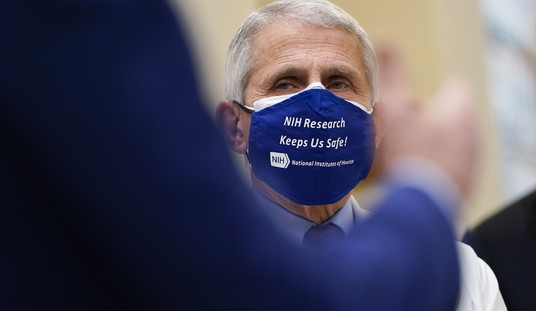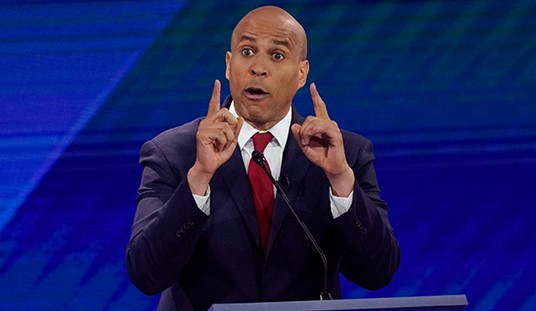
Throughout the primary, many commentators on this site and others have been bewildered by Donald Trump’s ability to appeal to Christians, particularly alleged Evangelicals. Many of these Trump supporters appear content to follow him even if it comes at the cost of their witness and reputations. Dr. Ben Carson and, to a lesser extent, Governor Mike Huckabee serve as prime examples of prominent men of faith in the race who have traded their values in for access to Donald Trump. One of the more common defenses of Donald Trump that I hear from prominent religious leaders is that, while far from a model believer (if one at all), Donald Trump would bring a business approach to governance that would allow the U.S. to restore lost jobs to a stagnant economy, reinvigorate the middle class, and return the U.S. to its former status as a manufacturing powerhouse. Further, he would restore the country to a position of strength in terms of foreign policy. This, they argue, offsets any defect in Trump’s character, at least to the point that they argue that believers can afford to look the other way. These include the likes of Jerry Falwell, Jr., Robert Jeffress, and Willie Robertson. These supporters argue that Trump offers a businessman approach to the Presidency that would be excellent for the U.S. economy and status; implied is that such a leader would do no harm to believers in the meantime.
Numerous others have already explained that a Trump economy inspires no confidence and that Trump is perceived as a disaster waiting to happen in terms of foreign policy. However, let’s temporarily assume that such concerns are non-existent and that Donald Trump is a statesman beyond reproach. Rather, I would focus on the second half of the above premise: that any potential harm Trump poses to Christians or other conservative believers is outweighed by the American renaissance that awaits. It would undoubtedly be useful if we had a similar leader to compare to the current Republican frontrunner: a former Democrat with a background in business, a history of questionable ethics, with a token affinity for faith. As the links that I’ve listed indicate, I believe we find a suitable comparison in Nathan Deal, the Governor of Georgia.
Unlike Mr. Trump, Governor Deal has spent considerable time in elected office. Similar to Mr. Trump, he started out as a member of the Democrat party. He opportunistically changed parties after the 1994 election which ushered Republicans into power in the House for the first time in decades. He remained in Congress until his resignation in 2010 to run for governor; curiously, said resignation was submitted on the heels of a damaging report from the Office of Congressional Ethics which found that Deal appeared to have used Congressional staff to pressure Georgia into maintaining programs that benefited his family’s auto salvage business. Finally, Governor Deal is a member of First Baptist Church of Gainesville, a church with denominational roots that are more mainline than evangelical in nature. According to the Governor’s office, his tenure has been an economic success with the creation of 391,000 jobs with Georgia’s business climate being hailed as one of the best in the country. While his economic policies may or may not be comparable to Mr. Trump’s, it can at least be argued that Governor Deal represents what Trump supporters envision when they contemplate the economy under a Trump presidency.
However, that economic success appears to have come at quite a price for Christians and other people of faith in Georgia. In an announcement that made headlines across the country, the governor vetoed a religious liberty bill designed to protect pastors and faith-based non-profits from litigious persecution by militant LGBT activists. It was striking because the bill put forward by the legislature was a watered-down version, a compromise that had been put together at the governor’s request. Equally stunning was the fact that the governor elected to do so on the day after Easter, the most sacred holiday to the Christian faith. The governor’s remarks, in addition to using selectively quoted Scripture, seemed devoid of any understanding of the issues surrounding the current fight for religious liberty; similarly, they tended to plead ignorance arguing that the First Amendment to the Constitution already provides requisite protections. Any individual with basic comprehension of RFRA understands that the Supreme Court had defanged the First Amendment’s religious freedom protections; Congress then passed the Act in an effort to repair the damage that the Court had done. However, that law only applies to federal cases, laws, and actions. In order for believers to enjoy similar protections at the state level, the Supreme Court has indicated that state governments would have to provide their own versions of RFRA. Many have done so. The governor’s alleged deference to the First Amendment constituted an ignorance of religious liberty law, deliberate or otherwise.
The governor was not, however, ignorant of the economic ramifications of such a law. It was well known that major corporate entities such as Coke-A-Cola, Delta Airlines, Disney, the NFL, and Home Depot were threatening economic boycotts of the state if the Governor dared to sign a law that provided protections to Christian pastors and faith-based non-profits who did not wish to participate in same-sex weddings. He was being lobbied heavily by the Georgia Chamber of Commerce to veto the legislation. It did not matter that a majority of Georgians supported the legislation; Nathan Deal’s business instincts told him that religious liberty would have to take a backseat to economic development.
So how does this pertain to Donald Trump? Consider how similar his background is to Nathan Deal’s: he has a long history as a Democrat (with some other party jumps sprinkled in), his business history is well known, his unsavory business practices and contributions to corruption are perhaps less known, and he makes a token claim to faith as a mainline Christian. “So?!” Trump supporters would shoot back, “You don’t know his heart! How can you be so sure that he won’t fight for people of faith?” I suppose it’s true that I don’t know Mr. Trump’s heart. However, Christ provided a useful warning for believers when approached by those claiming to share their faith. It is written in Matthew 7:16, “Ye shall know them by their fruits. Do men gather grapes of thorns, or figs of thistles?”
Mr. Trump has made plenty of statements over the course of the primary alone that would seem to reveal his true character on matters near to the heart of most people of faith. He has been willing to offer praise to Planned Parenthood, despite it’s notorious reputation as an abortion factory and a seller of child remains. Before running for the Presidency, he has described himself as pro-choice on the issue of abortion; his offered rationale for his “evolution” was that he observed a girl that was due to be aborted obtain financial success (is that the standard for human worth?). He has quickly taken the side of the LGBT in the North Carolina bathroom episode. He has indicated that he has never felt the need to ask forgiveness of God or anyone else. He has twice broken his marriage vows and done so in pursuit of women that he found younger and more attractive. I could go on, but my point is that like Governor Deal’s past served to give warning that he would value economic progress over protection of faith, Trump’s history points to a man who is uninterested in keeping his word to or even understanding the priorities of people of faith. He is already beginning to signal a desire to shift back to his prior position on abortion.
Nathan Deal and Donald Trump are both men who prefer economic success over faith and principle. If Trump followers like Robert Jeffress or Willie Robertson choose to support Mr. Trump despite that reality, that is their right. However, when Mr. Trump inevitably turns on believers, either through his appointment of liberal judges or his refusal to support legislation prioritized by people of faith, they should not be allowed to plead ignorance. Throughout the primary, all have been provided with reminders that Mr. Trump’s commitments to faith, life, and family are for show at best. None should be surprised when he abandons them once they lose their usefulness. Another verse would seem instructive. Matthew 6:24 states, “No man can serve two masters: for either he will hate the one, and love the other; or else he will hold to the one, and despise the other. Ye cannot serve God and mammon.”
I don’t have to have a pastor in the White House. While I would prefer a fellow Christian, I don’t have to have a candidate that is one. I would settle for a candidate that respects my faith enough to refrain from exploiting it for political and material ends or at least quit claiming to share it when his lifestyle contradicts said claim.













Join the conversation as a VIP Member